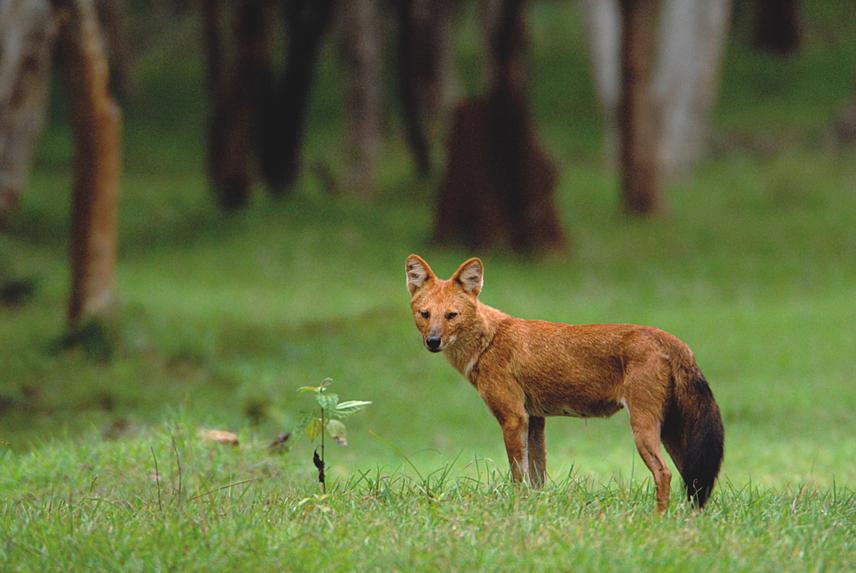Gopi Govindan Veeraswami
The study aims to assess the current status of dholes in western Arunachal Pradesh and threats to their conservation, and to identify areas/habitats important for long-term conservation of this species.

Dhole. ©Kalyan Varma
Asiatic Wild Dog or Dhole (Cuon alpinus) population has been estimated to be less than 2,500 mature individuals in the wild. This has led the IUCN to declare Dholes as vulnerable. Though threatened with extinction, so far it has received very little academic and conservation attention. There have been very few long term studies in the peninsular India. But there are literally no studies or conservation efforts carried out in other parts of the geographic range of this species especially in the Himalayas. It’s this very gap in our understanding that this project plans to address by understanding the ecology and conservation requirements for dholes in the Arunachal Himalaya.
Dhole ecological research in the Himalayan ecosystem is still in infancy compared to the detailed work carried out elsewhere in the country. Dholes are least studied carnivore in the wild. It was in early 70’s Cohen's detailed review enriched the scientific knowledge. This was followed by a two year field research study by Johnsingh in Bandipur Tiger Reserve, in southern India; this study augmented the base line information of dholes in the country. This study gave insights and empirical information in feeding ecology and prey selection, spatial use patterns, social dynamics, and reproductive behaviour. Another study was followed after a decade gap by Venkataraman and was carried out in Mudhumalai Sanctuary (geographically connected to the previous study site of Johnsingh). There is a huge lacuna of knowledge base on this rare species in a critical biodiversity hotspot. Together with the increasing conflicts level with local people, there is a higher threat of local extinction of this species if left unnoticed.
It is henceforth imperative to enrich the current knowledge on conservation ecology of this endangered species. This project aims to strengthen the existing knowledge base by conducting status surveys in western Arunachal Pradesh. This project also aims to impart conservation efforts through the local communities by integrating traditional and scientific knowledge for the conservation of this species. Here, I propose to develop a long term research and conservation program focusing on the endangered dholes. This study is a first step in establishing the program.